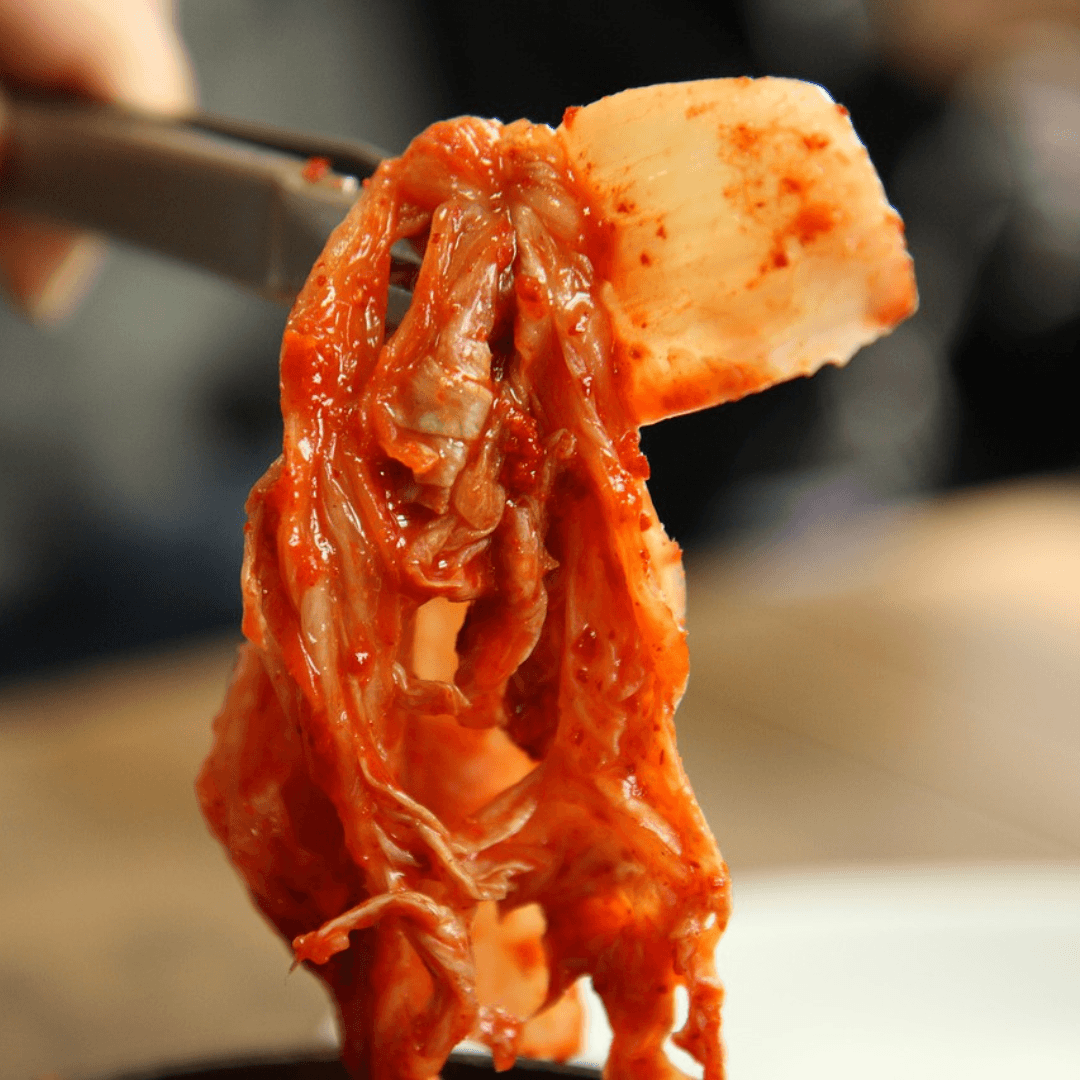
Question of the Day
There was a saying that you should avoid certain foods your food while breastfeeding. Can I eat spicy food or side dishes such as kimchi? I'm only eating seaweed soup and rice because I’m not sure whether my baby have a reaction to my milk if I eat certain foods, but I think I'm getting tired of it.
There is a myth saying that if a breastfeeding woman eats spicy food, the baby's buttocks turn red. For this reason, breastfeeding mothers often insist on milder side dishes, such as omitting spicy foods from side dishes. So, is this myth true? Let's take a closer look at each food.
1. Spicy Kimchi
Stimulating ingredients such as garlic and green onions can affect the taste and aroma of breast milk. However, this taste and smell is not harmful to the baby. The fact is that eating more of a particular food doesn't make a difference! As a result of a domestic study, it was also found that babies of mothers who ate garlic consumed more breast milk for a longer period of time than babies of mothers who did not.
2. Coffee
Coffee is also a food that nursing mothers avoid. As a result of a study by a research team in Korea, “caffeine was not detected in the urine of the child even if mothers who drank 3 cups of coffee a day were breastfeeding.” It can cause irritation, meaning that up to two to three paper cups of coffee per day is fine, as not much of the caffeine is transferred through breast milk, but be careful not to drink too much.
3. Sikhye
Sikhye is a food that nursing mothers avoid because of the myth that it reduces milk production. However, studies have not shown scientific evidence that sikhye reduces milk production.
What should a breastfeeding woman eat?

So, how can eating help deliver healthy, high-quality breast milk to your baby? It's all about consuming all the nutrients in the right amount. When breastfeeding, you need to eat really well. This is because the energy of the mother and the energy she ate is transmitted directly to the child. If you eat poorly while breastfeeding, you may be at an increased risk of osteoporosis.
It is good to drink about one glass of soy milk or milk a day and eat about one pack of nuts and a small amount of fruit every day. Eating healthy snacks frequently throughout the day will improve your breast milk quality more than consuming too much of one or two specific foods.
The taste and smell of food eaten by the mother is transmitted through breast milk. If the mother has eaten vegetables frequently since she was a nursing mother, she will reduce her baby’s picky eating as the child gets used to the aroma and taste of vegetables.
It is the best option for both children and mothers to eat a balanced range of healthy foods regularly, regardless of what the specific food choices are. However, excessively spicy or oily foods are not recommended for the health of nursing mothers.
Foods that are too spicy can irritate a weakened mother's stomach. Also, if you eat more than a few meals in a row of fatty foods (for example, pork), the fatty foods can block your milk ducts and cause breast pain. Consider a diet that will ensure you as a lactating mother are satisfied, healthy, and happy to eat!
#Parenting advice from Director Hyang-Hwa Kwon
If you have a premature baby, please be a little more careful!
If you are breastfeeding babies under 2kg, be careful with your mother's diet at this time. It is okay to insist on only eating mild meals for about a month. This is because the intestines of early children are very immature. A mother's care is required until the beneficial bacteria settle well in the intestine and digestion and absorption become smoother.
---------------------------------------------------
Author: Kwon Hyang-hwa
- Newborn Childcare Coach
- IBCLC International Breastfeeding Specialist
- Worked as the director of a postpartum care center for 10 years.







